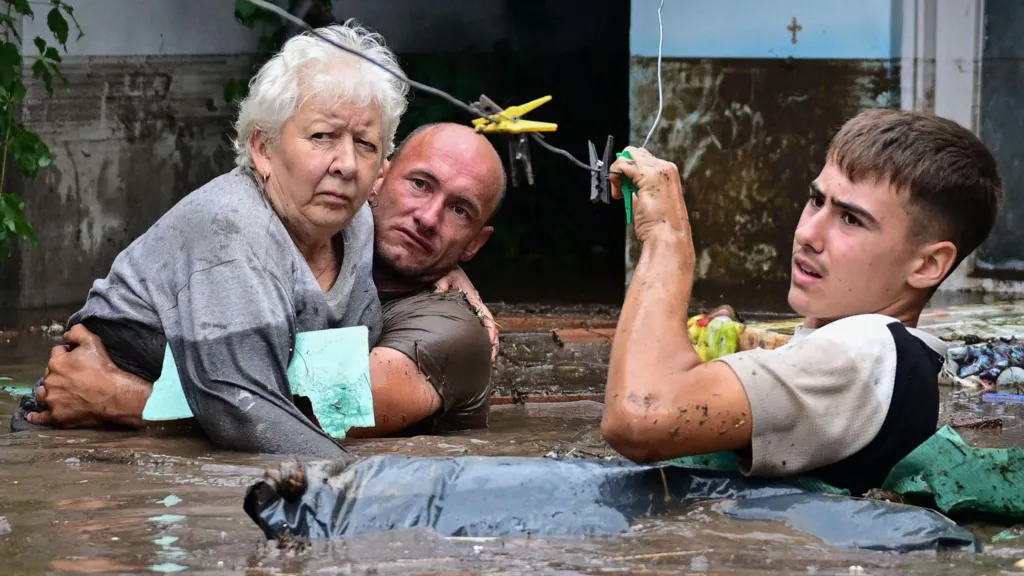Central Europe has recently faced catastrophic flooding, intensified by climate change, that has raised urgent alarms about the future of the continent, which is warming faster than any other region in the world. Storm Boris has wreaked havoc across countries such as Poland, the Czech Republic, Romania, Austria, and Italy, resulting in at least 24 fatalities and billions in damages.
According to the World Weather Attribution (WWA) group, the rainfall during this storm broke records, with one particular four-day period being the rainiest ever recorded in central Europe—a phenomenon made twice as likely due to climate change. Fortunately, the storm’s severity was anticipated, allowing some areas to prepare effectively and potentially saving lives.
The Impact of Climate Change on Weather Patterns
Scientists at WWA have analyzed the impact of climate change on extreme weather events by contrasting them with hypothetical scenarios in which fossil fuel consumption has not altered the climate. The torrential rainfall associated with Storm Boris is still relatively rare, estimated to occur every 100-300 years in today’s climate, which has warmed by approximately 1.3°C due to greenhouse gas emissions.
However, projections indicate that as global temperatures rise—potentially reaching 2°C—the frequency and intensity of such extreme weather events will increase significantly. The WWA warns that without substantial climate action, we could see a warming of around 3°C by the century’s end. “This is definitely what we will see much more of in the future,” asserts Friederike Otto, a climate science lecturer at Imperial College London and co-author of the WWA study.
The Changing Climate of Europe
The consequences of climate change are evident across Europe, the fastest-warming continent, with average temperatures in the last five years being about 2.3°C higher than in the late 19th century. This warming is linked not only to increased heatwaves but also to heavier and more frequent rainfall, particularly in northern and central regions.
The underlying science is straightforward: warmer air holds more moisture—about 7% more for every 1°C increase. This additional moisture leads to more intense rainfall. The stalled weather systems, like the one associated with Storm Boris, can dump excessive rain over the same regions for prolonged periods, exacerbating flooding. Some researchers believe that climate change may contribute to these systems becoming “stuck,” although this hypothesis remains under investigation.
Preparedness and Future Implications
Advancements in weather forecasting have significantly improved our ability to predict extreme rainfall events, allowing for proactive flood preparation. As seen in the recent flooding, such preparedness likely mitigated the death toll compared to historical flood events in 1997 and 2002, despite heavier rainfall this time.
However, the EU has pledged €10 billion for emergency repairs, highlighting the financial burden climate change imposes on affected regions. While improved flood defenses have been established over the past decades, experts warn that rising temperatures and increasing extreme rainfall could render these protections inadequate.
Francesco Dottori, a researcher at IUSS in Pavia, Italy, emphasizes that if flood defenses remain static while the intensity of flood events escalates, the societal impacts may become untenable. “The severity of flood events is going to increase considerably in the future,” he states.
A Call for Climate Action
To stave off the worsening of such catastrophic weather events, a clear path exists: reducing emissions of greenhouse gases like carbon dioxide. Dr. Dottori’s simulations suggest that limiting future global warming to below 1.5°C, in line with the Paris Agreement targets, could halve future flood damages compared to a business-as-usual scenario.
As we confront the escalating realities of climate change, the events following Storm Boris serve as a sobering reminder of what lies ahead if meaningful action is not taken. “The intensity of rainfall and these weather events will only get worse,” warns Richard Allan, a professor of climate science at the University of Reading. The time to act is now, before such disasters become a regular occurrence across Europe and beyond.


